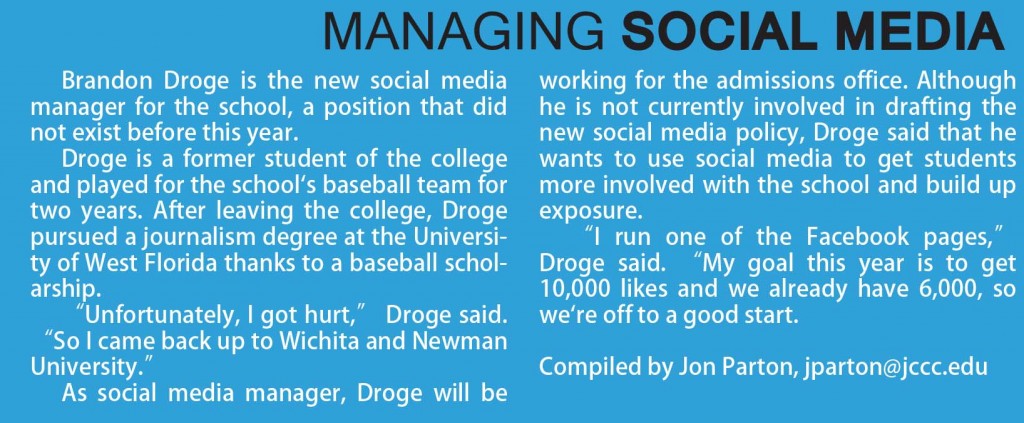By Jon Parton

A committee at the college is drafting a new social media policy, expected to be finalized during the semester.
A writing committee was set up in 2010 to create guidelines on how the school should handle social media. The school is one of many that have had to implement social media guidelines for students and faculty in recent years.
According to Patrick Lafferty, assistant professor, Computer Interactive Media and committee member, the guidelines were created after four nursing students were expelled for posting pictures of themselves with an anonymous woman’s placenta on Facebook. One of the students, Doyle Byrnes, successfully sued the college in federal court.
“It’s a good idea for an institution to implement a social media policy,” Lafferty said.
The process itself has been worked on for two years. Lafferty said that it has been difficult creating a policy that accounts for privacy, freedom of speech, and changing technology.
With the abundance of social media websites like Facebook, Twitter, and Google+, Lafferty said it is important to account for all of them. Although the policy is likely to be released this semester, Lafferty said the process has taken two years.
“We never actually completed a policy,” Lafferty said. “It’s important to write it with future considerations.”
According to Tanya Wilson, general counsel for the school, the current guidelines mostly make reference to existing policies already in place. She said there is no guaranteed timetable for the new policy, but she believes it should be completed within a couple of months.
“It’s not unusual for a policy to be updated,” Wilson said. “But it’s important to make the policy flexible.”
Wilson said the writing committee is made up of ten college employees. She was unable to comment on the specifics of the policy because it is still being drafted.
The current social media guidelines posted on the college’s website state that the use of profane or harassing language will not be tolerated on any college-hosted sites. They also prohibit students, faculty and staff to act as official representatives of the school without authorization.
Peter Belk, program director, Admissions, has been a part of the writing committee for the past two years. He said although the original agreement was written two years ago, there were many issues the guidelines did not address.
“We had to merge things together,” he said.
Belk said it is important that the final policy address issues such as violent language and libelous content.
“Let’s say you were to harass or threaten someone online,” he said. “If you’re a student and a staff member, do we fire you or expel you?”
Contact Jon Parton, managing editor, at [email protected].






















